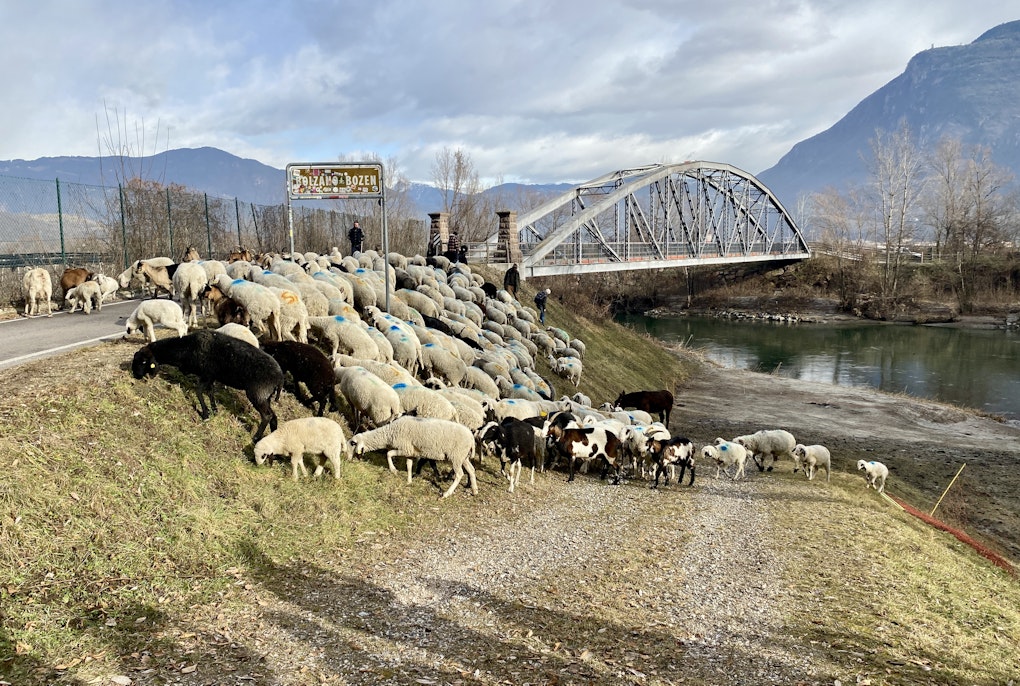
La pastorizia nomade fa scuola: il competence center di LifestockProtect in escursione



What started 8 years ago as a banking and sovereign-debt crisis has metamorphosed into a growth crisis and is now evolving into an unemployment crisis. EUROSTAT estimated 23 million unemployed in the 28 EU Member States (18 million unemployed in the Euro-area). Demographically, the “Unemployment Nation” in Europe is Europe´s sixth largest State: as big as a quarter of Germany and as large as Belgium, Austria and Finland combined. “No one in society remains untouched by a situation of high unemployment” – stated Mario Draghi, President of the ECB, at the annual meeting of central bankers in Jackson Hall 2 years ago. An unusual statement by a central banker, but a fundamental statement in the midst of the inter-regnum Europe is facing.
Inter-Regnum: a Union, not a society
Europe is living the current condition of Inter-Regnum: Europe is a Union, not a society (as Draghi knows). Europe is a union of member states, not a super-state. As a Union its tasks are limited to certain domains, the rest is sovereignly in the hands of Member States. Europe is united monetarily, but not fiscally. Europe is united by the free movement of persons, but labour markets have not been unified. The greatest challenge Europe is facing is called “Euro”, while the greatest challenge its Member States are confronted with is called “Jobs”. The two challenges are two sides of the same coin and the Euro is not a one-faceted currency. Mario Draghi stated that he would do “whatever it takes” to preserve the Euro – but has no mandate for unemployment in Europe.
The first signal of economic recovery started to appear in the second half of 2014 and statistics are catching up with real-world data. The March 2015 macroeconomic projections by the ECB staff suggests encouragingly that the Euro-area potential output will be 2.1% in 2017. The last lines of the same communiqué, however, overshadow the glimmers of hope: the unemployment rate is expected to remain in the magnitude of 9.9% in 2017 (from 11.6% in 2014). In other words, long-term unemployment will remain a problem and the “Unemployment Nation” will decrease – but will still be as large as Belgium, Austria and half Finland combined. While government need to promise jobs to be re-elected, the ECB forecast means that their promises will be difficult to be maintained in the current electoral cycle.
A new idea: ERASMUS for workers?
Despite historically low interest rates, investments in most OECD countries is significantly below the pre-2008 crisis level – and employment rates remain persistently low. The “Unemployment Nation” is ubiquitous in Europe, but remain geographically heterogeneous. In 2015, the OECD Employment Outlook pictured a somber situation in Europe: the highest unemployment rates were registered in Greece (26.8%), Spain (25.1%), Portugal (14.3%), Slovak Republic (13.9%), Italy (12.6%), while the lowest unemployment rates were recorded in Austria (4.7%) and Germany (5.1%).
The political map of Europe is changing accordingly, with the increasing popularity of populism. Youth unemployment might devastate the hopes of a generation of young Europeans. The EU needs to refocus its agenda. Labour markets needs to be revitalized and liberalized. As demonstrated for the US by Enrico Moretti (UCLA Berkeley), a “mobility card” for workers could reduce unemployment and geographically redistribute jobs. This idea could be imported to Europe as an “ERASMUS for workers”, stimulating the free movement of person (a fundamental right for the EU). A new reform agenda –based on Monnet’s concept of a “functional Europe”– must grow endogenously and systematically in Europe, as this will be the best antidote against populism, extremism and apathy against the Euro.
The EURAC Institute for Regional Development and Location Management has set up a new task-force working on the economy and the employment of South Tyrol, aimed at an inter-disciplinary future-oriented research which focuses on well-being and competitiveness. On January 26th, 2017 we will be hosting a special one-day conference dedicate to “Strengthening Regional Innovation Networks” – further details can be found on the following webpage: German and Italian
Author: Francesco Anesi
Useful links








